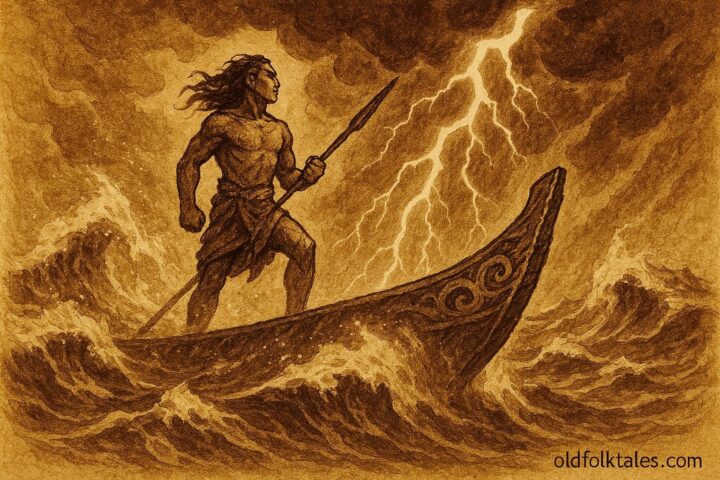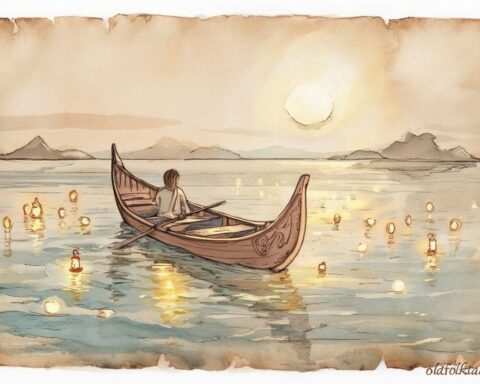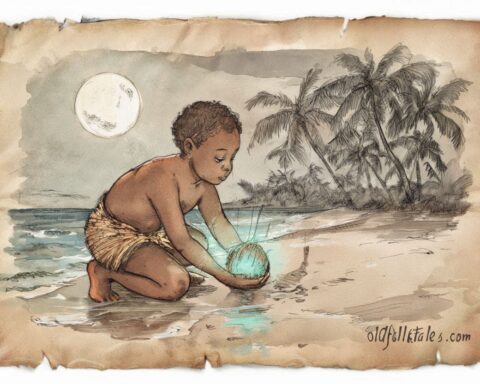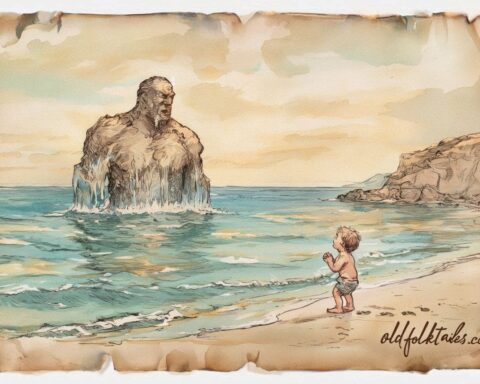In the old days of Palau, before compasses or radios, men learned the sea the way others learned prayer—by repetition, reverence, and risk. Among these men was Rahu, a young sailor who could read the waves better than most could read the wind.
He knew the paths of the fish, the breath of the tides, and the songs of stars, yet he longed for something more—the fabled Whale Road, a secret passage that only the greatest navigators could see.
The elders warned him, “The Whale Road belongs to the deep. It is not for human eyes.”
But Rahu was restless. “If whales can travel across oceans without getting lost,” he said, “then so can I.”
On a moonless night, he loaded his canoe with dried breadfruit, coconuts, and his father’s old shell map—a lattice of sticks and coral that traced invisible currents. He set out beyond the reef, following the dark horizon until the island’s torches vanished.
For three days, the winds were kind. Then, on the fourth, a deep vibration stirred the sea beneath him—a low hum that rolled through his bones. Out of the mist rose a whale as large as a mountain, its eye the color of stormlight.
“Turn back,” it rumbled, its voice echoing through the hull. “You seek a path meant for spirits.”
But Rahu stood firm. “Show me the road you travel, great one. Let me learn the way of the whales.”
The creature regarded him for a long time. Then it exhaled—a fountain of mist that fell like rain. “Very well,” it said. “But to follow the Whale Road, you must give up something the sea cannot return.”
Rahu hesitated only a heartbeat. “Take my fear,” he said.
The whale dipped beneath the surface and began to move. The sea shimmered in its wake, glowing pale green like moonlit silk. Rahu followed, steering through impossible calm, his canoe sliding faster than the wind could push.
Days turned to weeks, yet he never felt hunger or thirst. He saw islands rise and vanish like dreams, and fish with eyes like lamps swam beside him. At last, the whale slowed and surfaced beside a floating atoll where palm trees grew from coral bones.
“This is the end of the road,” said the whale. “Beyond this lies the land of spirits. No man may cross.”
Rahu bowed. “Then I will return and teach others how to find this way.”
The whale’s eye dimmed. “You cannot teach what was given for courage alone. But your children will inherit your knowing.”
With that, the whale dove, and the glowing path faded.
Rahu turned his canoe homeward. He followed the stars, yet something had changed—he could now feel the ocean breathing, hear its hidden songs. When he reached Palau, the people rejoiced. They called him Rahu the Wayfinder, first of the line of master navigators.
Even now, Micronesian sailors say when the sea hums low beneath the hull, it is the whale calling to the fearless—the sound of a promise kept across generations.
Moral of the Story
Knowledge born from courage can never be fully taught; it lives in the hearts of those brave enough to seek it.
Knowledge Check
1. What was Rahu’s gift?
He could read the sea, tides, and stars better than most sailors.
2. What was the Whale Road?
A secret path across the ocean, known only to the great whales.
3. What did Rahu offer the whale to follow it?
He gave up his fear.
4. What did Rahu find at the end of the road?
A spirit atoll beyond which no mortal could travel.
5. What did the whale tell him about teaching the way?
That true courage cannot be passed down, only rediscovered.
6. What do sailors still believe about the Whale Road?
That the sea’s low hum is the whale’s song guiding brave hearts.
Origin: Palau, Micronesian oral tradition






